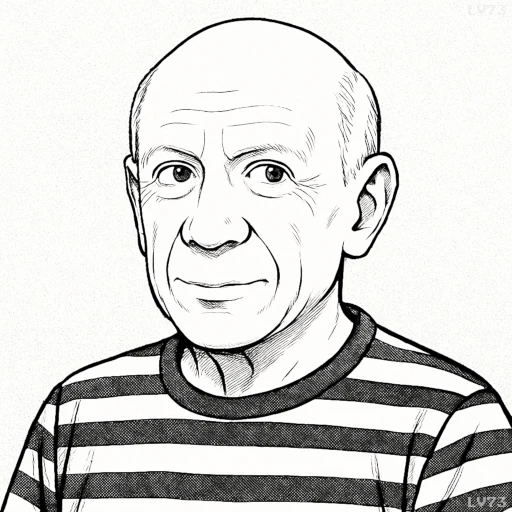“The chief enemy of creativity is ‘good’ sense.”

- October 25, 1881 – April 8, 1973
- Born in Spain
- Painter, sculptor, printmaker
table of contents
Quote
“The chief enemy of creativity is ‘good’ sense.”
Explanation
In this quote, Picasso challenges the conventional wisdom that rationality and logic are the keys to success. He argues that “good sense”—the traditional, safe, and practical thinking often considered wise or sensible—can actually stifle creativity. Creativity thrives in an environment of freedom, risk-taking, and unpredictability, where new ideas can emerge without the constraints of established rules or expectations. For Picasso, the most groundbreaking ideas come from the willingness to question and disrupt the norm, rather than adhering to what is deemed sensible or acceptable by society. His own work, particularly through Cubism and Surrealism, was a rejection of traditional artistic forms, embracing instead a more abstract, experimental approach to art.
This idea is especially relevant in modern times, where many people often feel constrained by societal norms, traditional career paths, or common sense ideas about what is possible. Picasso’s quote encourages individuals to push boundaries and take creative risks, even when it seems illogical or impractical. In an age of innovation and technological advancement, the ability to think outside the box and challenge conventional wisdom is often what leads to true breakthroughs.
An example of this can be seen in tech pioneers like Steve Jobs or Mark Zuckerberg, who embraced unconventional thinking and rejected traditional business practices to create companies that revolutionized industries. Similarly, in art, creators like Jackson Pollock or Andy Warhol took artistic risks, disregarding “good sense” in favor of expressing bold, original ideas. Picasso’s quote reminds us that creativity often requires the courage to move beyond the safe and familiar, allowing imagination to guide us to new and unexpected discoveries.
Would you like to share your impressions or related stories about this quote in the comments section?
